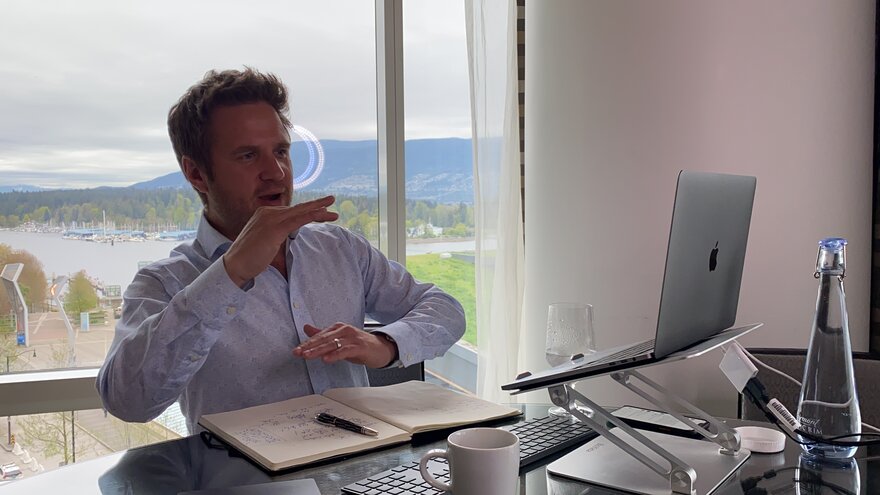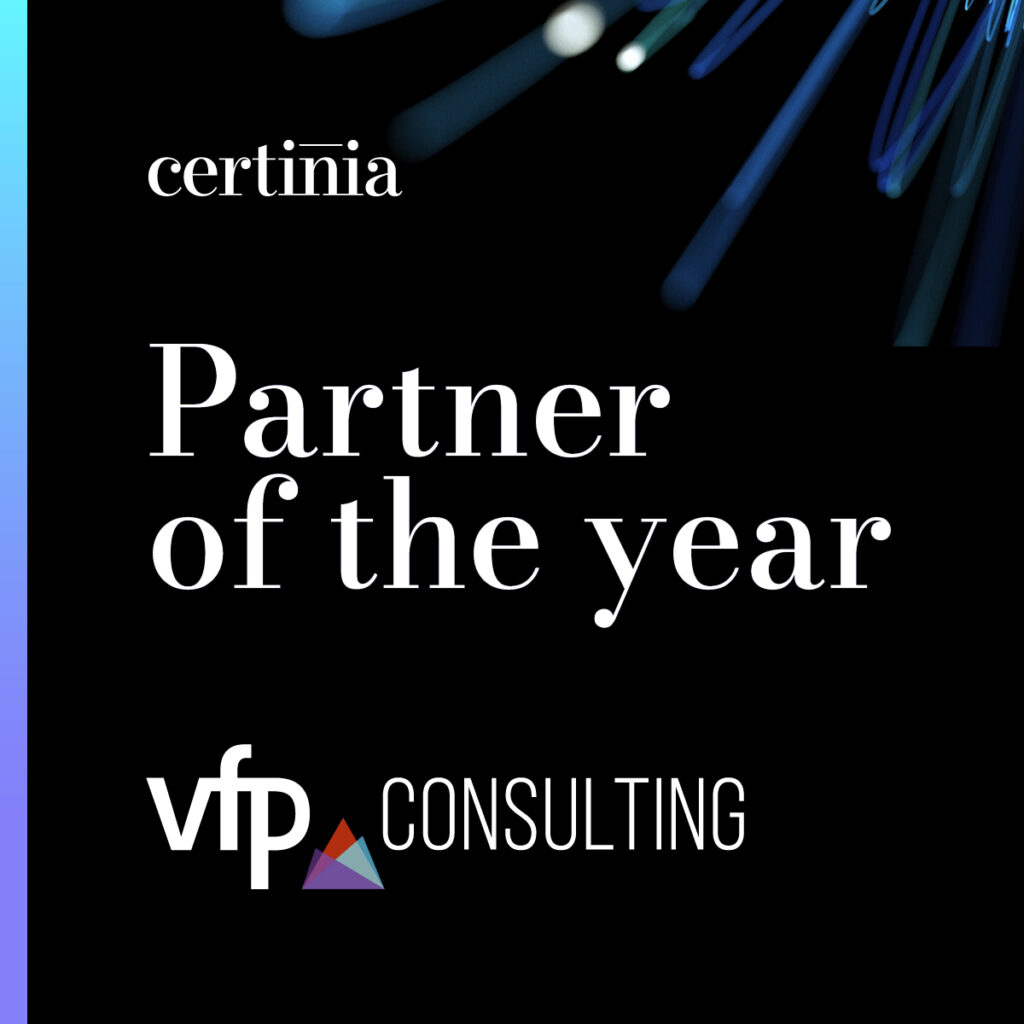Our COO, Doug Johnston, presenting to the team in four locations during our mini bubble covid all-hands meeting in small working groups.
VFP Consulting COO Doug Johnston reveals the secret we’ve all been wanting to know: how he built his team’s winning culture, despite being a 100% remote company.
There’s been a noticeable shift in workplace culture over the past few years, with many companies reforming their former views on company culture — or lack thereof. In short, many organizations are realizing that their “can’t do” attitude towards company culture just won’t cut it anymore. The workforce is now made up of 50% Millenials and this generation wants to work for companies that share the same values.
As COO of VFP Consulting, Doug Johnston understands the importance of strong leadership in growing a business. He’s been building scalable, large-capacity teams in enterprise environments for 20 years and has witnessed first-hand what can make or break a team.
Having a strong company culture is integral to a company’s bottom line for it affects every part of a business. Without aligned values and goals, employees will start to drift and question their overall happiness at their workplace and this can have serious consequences for your business. Recruitment, productivity, and financial performance will all suffer as a result.
Johnston brings a unique approach to employee management that’s based on a remote company culture focused on growth, sustainability, and loyalty. So what’s the secret to building a strong team and thereby, a company culture, from the ground up?
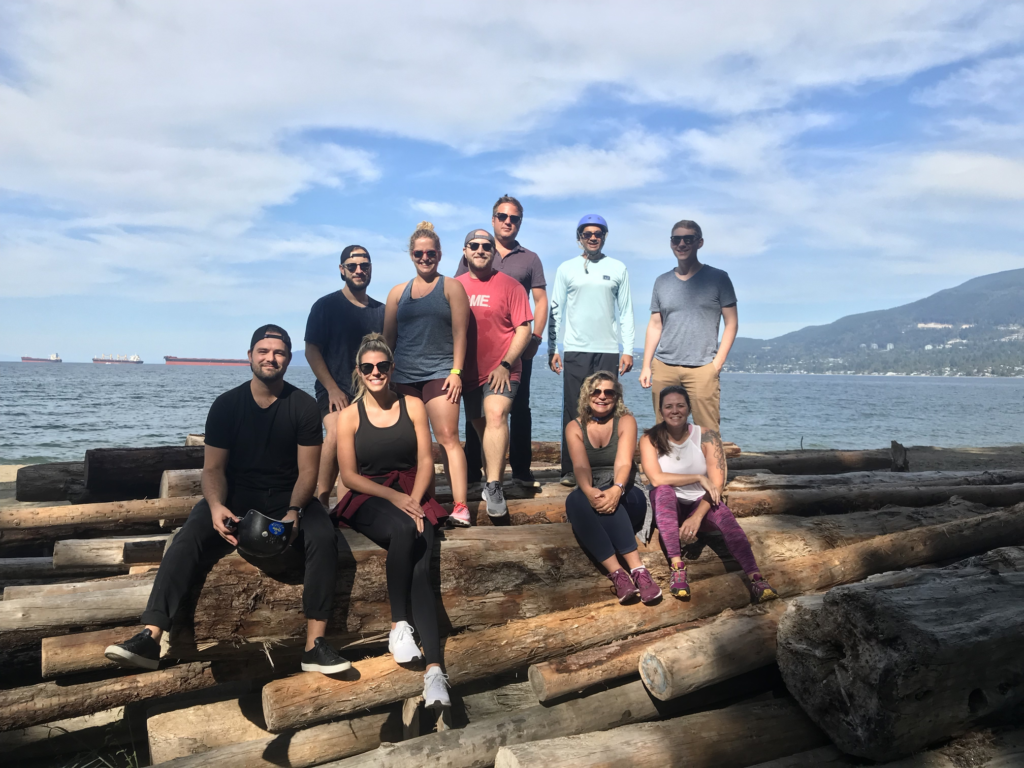
Make organizational health and living your core values your top priority
In a world of financial results, key performance indicators, and rapid change, it’s critical to recognize that one priority must remain above all others. “The overall health of a company — alignment, engagement, and trust — should be top of mind for executives that want to build a winning culture and company,” Johnston explains. “Without a healthy organization, you’ll be hard-pressed to get the sustainable business results you’re looking for. It’s foundational, and if you neglect it then nothing else matters.”
Johnston’s approach is straightforward: whether remote or not, you need to have a good sense of your company’s values. “VFP stands for vision, focus, and passion, and we have a great definition of exactly what that means that we talk about every day. We expect everybody who wants to be a part of this adventure to understand what we stand for,” Johnston says. “We want them to bring our values to everything they do in their jobs, every single day.”
Too many businesses think culture revolves around free beer and foosball tables, but in reality, it’s rooted in something a lot more personal.
Doug Johnston, COO, VFP Consulting
Johnston has noticed company culture thrives when employees start to take pride in their work. “People start to feel connected to the results of the business through their individual contribution, and the value they know they’re bringing to customers. People realize that they’re part of something special and that their contributions are meaningful. Culture starts to take on a life of its own, which is exactly what’s needed. Too many businesses think culture revolves around free beer and foosball tables, but in reality, it’s rooted in something a lot more personal.”
Create a communication plan
While having your employees aligned with your organization’s values and goals is an important first step, many companies fail to recognize that success goes beyond a splashy meeting and slogans written on a wall. It’s critical that culture is at the forefront of everything a company does, every day. At VFP, Johnston implemented a multi-tiered communication strategy to preserve and strengthen the health of the company. As the company grows, it becomes more difficult to keep everybody aligned and happy and effective communication becomes key.
VFP’s team lives and works all over the world, so staying in sync is no small feat. In addition to monthly All Hands Meetings and standard weekly operational meetings with teams, even more, important are the one-on-one meetings that happen weekly between every VFP employee and their leader. “This is where the personal connection happens,” says Johnston. “It’s a chance to take everything the company is doing and make it relevant for an individual. We help them understand how they fit and how they can grow. And as importantly, it’s our chance to get feedback on things we might not be seeing given how spread out we are.”
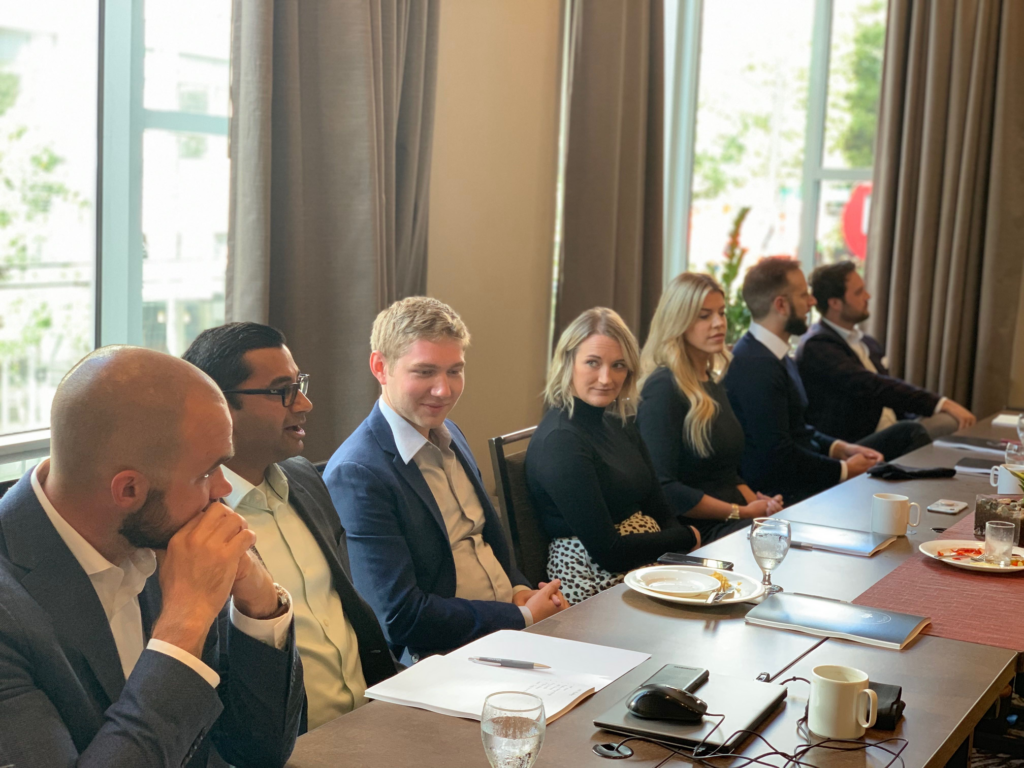
Johnston also created VFP Consulting’s much-buzzed-about ‘Virtual Friday Parties,’ where the company comes together in an unstructured, weekly video happy hour to connect with one another in a casual environment. “We shoot the breeze on what’s going on around the company and tell some funny stories. You’ve got to have a sense of humor in this line of work,” Johnston explains with a laugh. “You spend a lot of time away from family, and there’s a lot of pressure to get things done. We’re operating in a world of ambiguity and it’s our job to bring clarity. You have to enjoy the people you’re on this journey with.”
Johnston acknowledges that effective communication starts at the top. It’s crucial that the executive team lead by example in order to maintain engagement. It’s the key to having your employees continue to push forward. “Disengagement can be a fatal blow to a company. I’m unapologetic for constantly reminding our team of what we stand for. If I don’t constantly show that culture matters to me, how can I expect others at VFP to buy in?”
These days, you can accurately measure financial performance, customer satisfaction, and even productivity. But how do you know when your company culture is having a positive effect on the company?
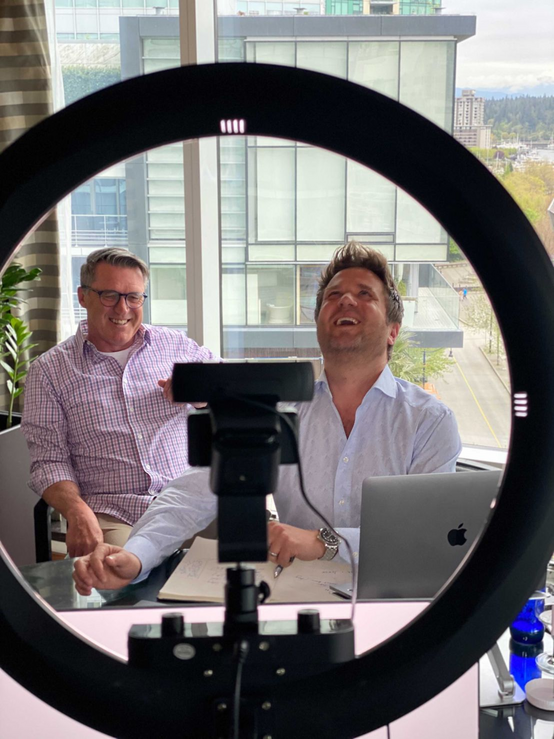
Attitude counts
Data is important, and measuring things like employee satisfaction can be useful, but sometimes you have to put it aside and look at the employees themselves. Building a team that operates well together and follows a company’s core values is difficult but it’s also integral to a company’s success. Johnston is a big believer in attitude as the top trait in people who work at VFP.
“When we’re hiring, we hire for attitude first and experience second because we know it counts. It’s something that is constantly being looked at throughout the year to make sure people are looking at their jobs and their results the right way,” Johnston elaborates. “We make sure that the attitude we liked when they came into the position hasn’t slipped. If it has, we try to figure it out. It’s important to recognize that constantly realigning at all levels bubbles up to the results of the business.”
Organizations that put company culture at the forefront of their priorities will have a leg up on other companies in the industry, especially in the coming years when an entirely new generation of employees will dominate the workforce. With different values and attributes to consider, companies will need to adjust appropriately to ensure business growth down the line.
Tell us: what is your business doing to put company health and culture top of mind?
